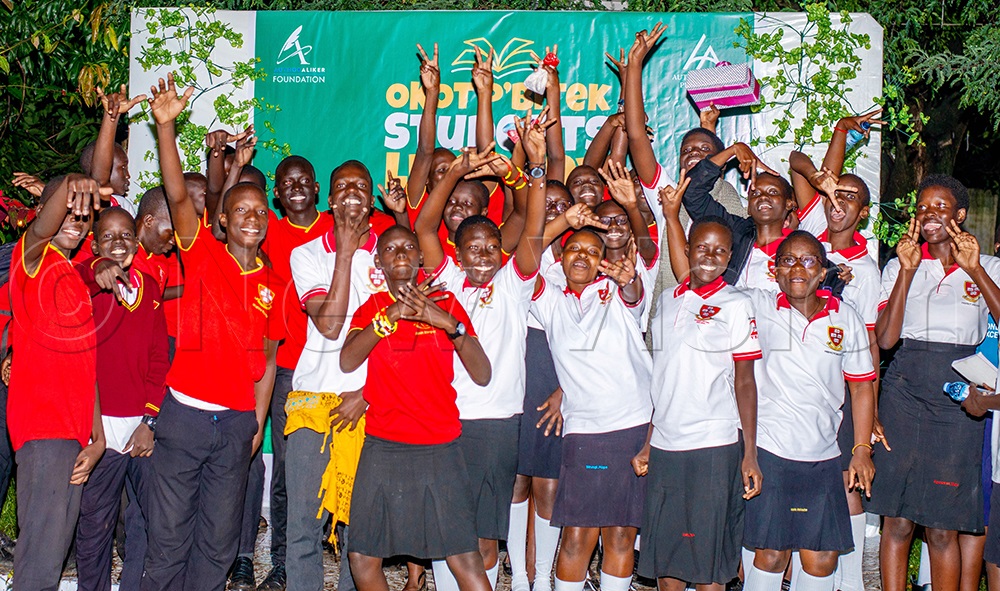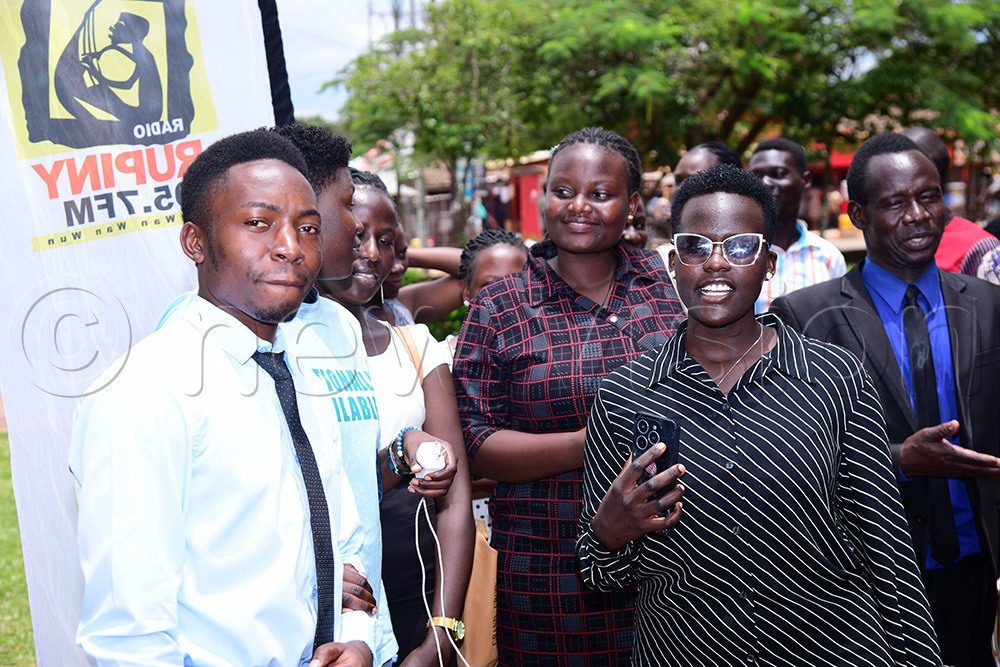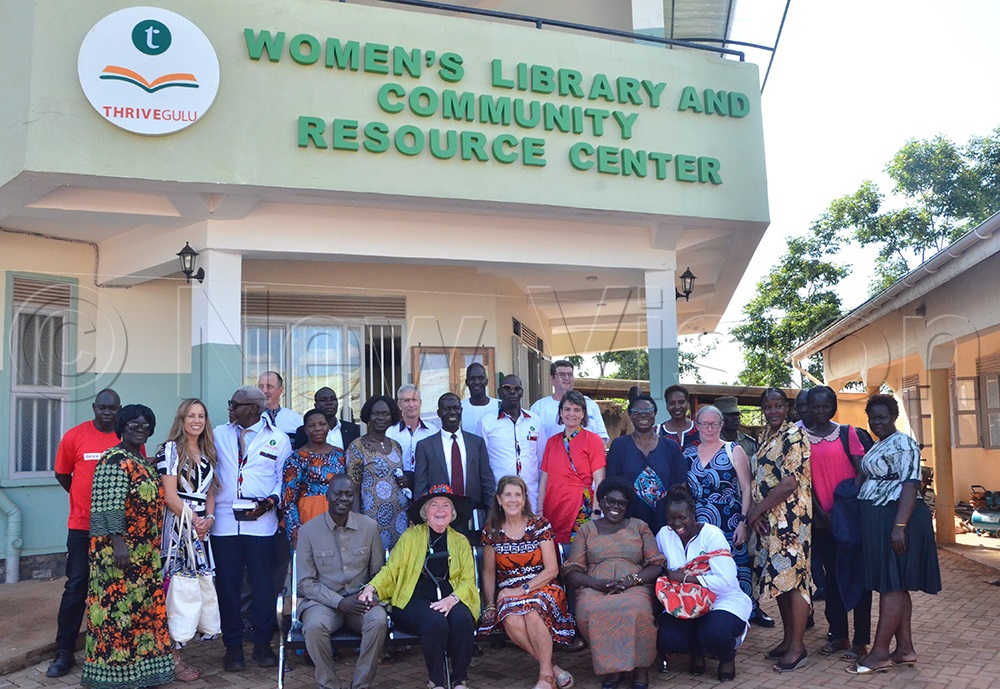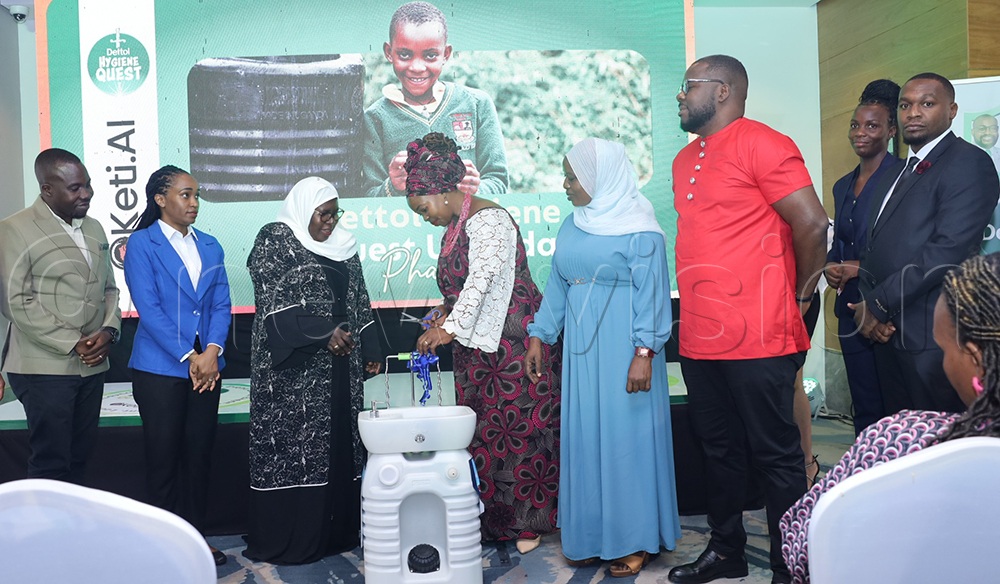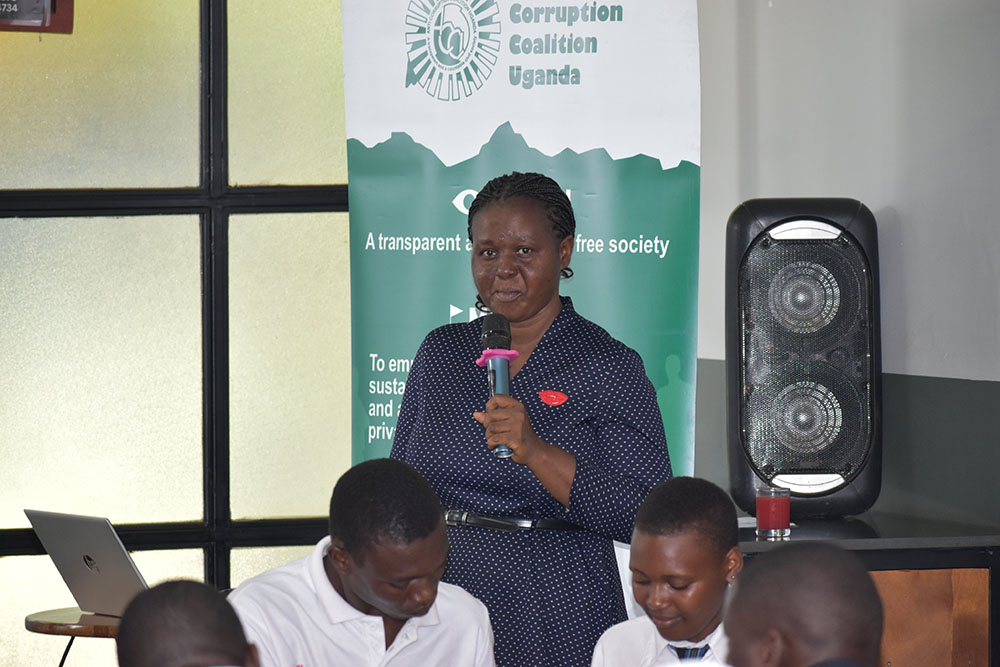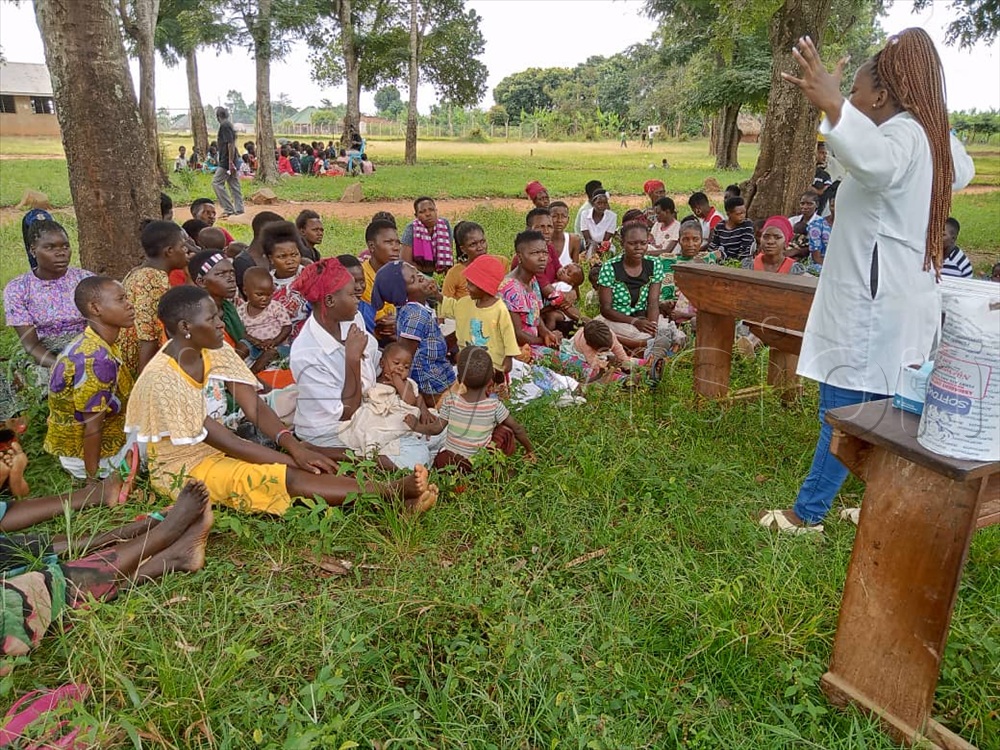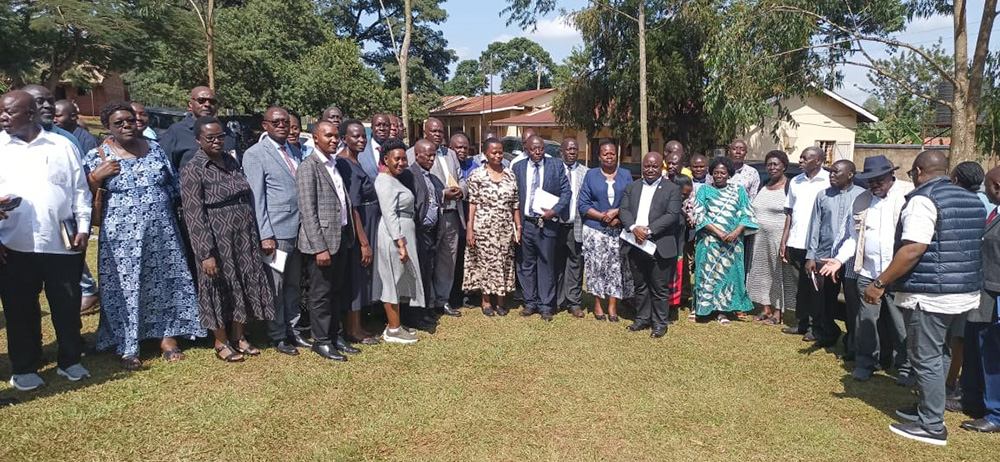Students of St Pope John Paul II College celebrating the win by Immaculate Lamaro, and her colleague; Immaculate Aber who won in spoken word poetry. (Photo by Jackson Kitara)
__________________
GULU - Immaculate Lamaro, a student of St Pope John Paul II College, has received shillings one million after being crowned the winner of the Okot P’Bitek Student Literary Festival 2025 in written word poetry. Lamaro beat 51 other students from four schools.
She wrote a poem titled Twon Dako, praising a true Acholi woman, how she grinds cereal and cooks delicious Acholi dishes, welcomes people at home and keeps her homestead clean, among others.
The literary festival organised by the Author Aliker Foundation was held at Forest Hill in Gulu city on November 2, 2025.
Runner-up Sharon Oroma, a student of Ocer Jesuit college who wrote a poem on Onion, describing how life can sometimes be hard like peeling an onion, was awarded shillings 500,000, while in third place was Gulu Secondary School student Samuel Rachkara, who wrote the poem: Whisper Identity, was awarded shillings 300,000.
In the spoken word poetry competition, Ocer Campion Jesuit College student Mercy Adyero emerged the winner after she garnered 76.5%, followed by St. Pope John Paul II College students Immaculate Aber and Immaculate Lamaro, who got 75.5% and 73%, respectively.
All the winners in the spoken poetry were awarded gifts wrapped in boxes.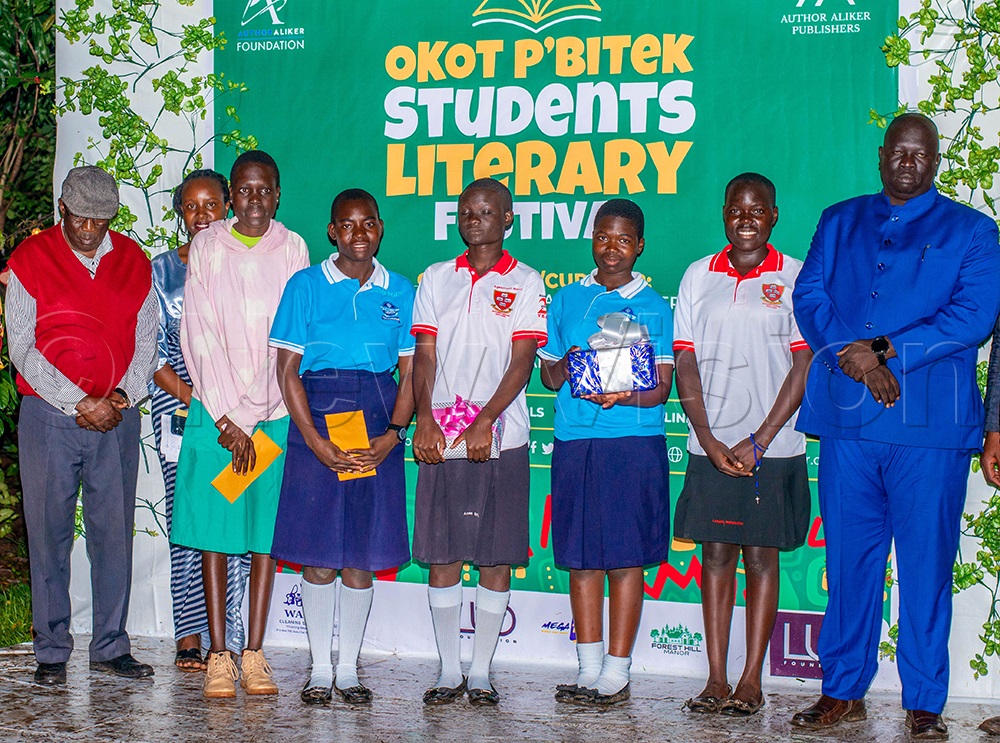
Students who won both written and spoken poetry pose for a group photo with Prof. Charles Nelson Okumu, an associate Professor of Literary and Cultural Studies in the Department of Languages and Literature, Faculty of Education and Humanities, Gulu University (Extreme left), together with RDC Amuru, Geoffrey Osborn Oceng. (Photo by Jackson Kitara)
Sandra Auma, an adjudicator for written poetry, said this year, the number of written poems has gone down compared to last year.
She said she only received 52 written poems from students of four schools: Gulu Secondary School, Pece Secondary School, St Pope John Paul II College and Ocer Campion Jesuit College.
Reviving tradition and the reading culture
Martin David Aliker of the Author Aliker Foundation said the number of students who competed has gone down because many schools did not follow the guidelines.
He said he started the festival to help teach and train students how to write, read and speak the Acholi language so that they take up the footsteps of Okot P’Bitek.
Uganda's literary giant, Okot P'Bitek, is regarded as one of the most famous African creative writers. He wrote and published several books about Acholi culture in the Acholi language, including Song of Lawino (1966) and Song of Ocol (1970).
Aliker said it was a borrowed programme from Roco Paco when Ambassador Olara Otunu advised the people of Acholi to revive the Acholi language.
“We are focusing on publishing Acholi educational books written by students, promoting the reading and writing of Acholi and promoting any literary work that is Acholi in focus”, he said.
A man who liked reading
Agnes Oyela, the firstborn of Okot P’Bitek, described her father as a man who liked reading books, making jokes and playing football. He said his father was among the Uganda Cranes players who went to play football in England and played barefoot, and later on hid in England, the opportunity that made him study.
She said his father had a passion for speaking the Acholi language. She said when they were still young, he would ask them to speak the Acholi language even if they knew English.
Reviving passion for Acholi language
Assoc. Prof. Charles Nelson Okumu of literary and cultural studies in the department of languages and literature, Faculty of Education and Humanities at Gulu University, said young people nowadays find it hard to speak in Acholi and only prefer to speak English.
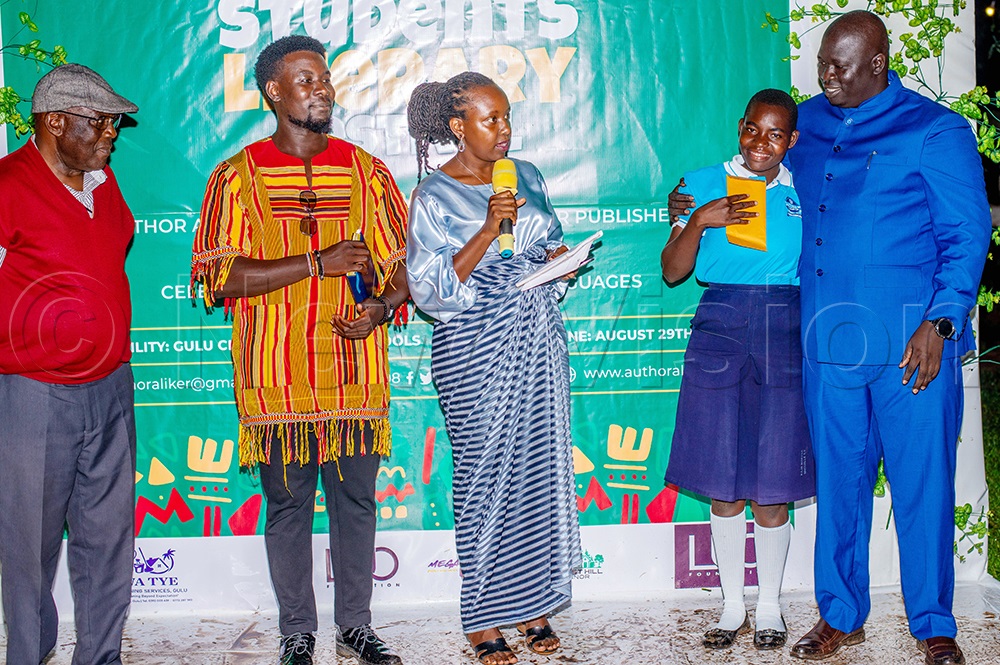
Amuru resident district commissioner, Geoffrey Osborn Oceng (in Blue suit), hugging Sharon Oroma of Ocer Campion Jesuit College after she finished as runner-up in the written poetry, after Sandra Auma (in centre), an adjudicator, as Prof. Charles Nelson Okumu (extreme left) during awarding the winners. (Photo by Jackson Kitara)
He said in the past, people of Acholi used to express their feelings through producing songs, but nowadays, people no longer sing or write about what has happened in their areas.
Okumu said in the past, if a person had done anything wrong or weird in the community, they would always sing to teach them how to live in society. He cited that most of the songs people sing in traditional dances have their meaning.
He encouraged students to continue to read books written by Okot P’Bitek to improve their language and requested schools in Acholi to introduce the Acholi language in their curriculum.
Zeru Barbel Abuka, a writer, requested the students to write a book depicting what is happening in their community. He said students can write about living in internally displaced (IDPs) camps during the Lord's Resistance Army insurgency, the election, and street children, among others.
“Many things happen in our areas, but people don’t put them in writing; instead, they like taking short video clips for TikTok because they are too lazy to write and read books”, he said.
Lincoln Moro Awer, one of the writers who was Okot P’Bitek’s friend, described him as a ruler because his name remains on Earth forever, even if he is gone.
He encouraged students to write their book because writers are dreamers, they foresee things and have a wider view by writing about it.
Caroline Aber of the Luo Foundation said they groom young people to know their cultures and traditions. She encourages students to take Acholi language as a subject they can study at school.
She noted that Acholi cultures are now eroding because there are so many western cultures coming up with the coming of technology.
“I do request girl children to put much effort into their education so that they finish their studies. Many young girls drop out of schools, yet their parents labour to make them study for the betterment of their future”, Aber encouraged.


 Jackson Kitara
Jackson Kitara 